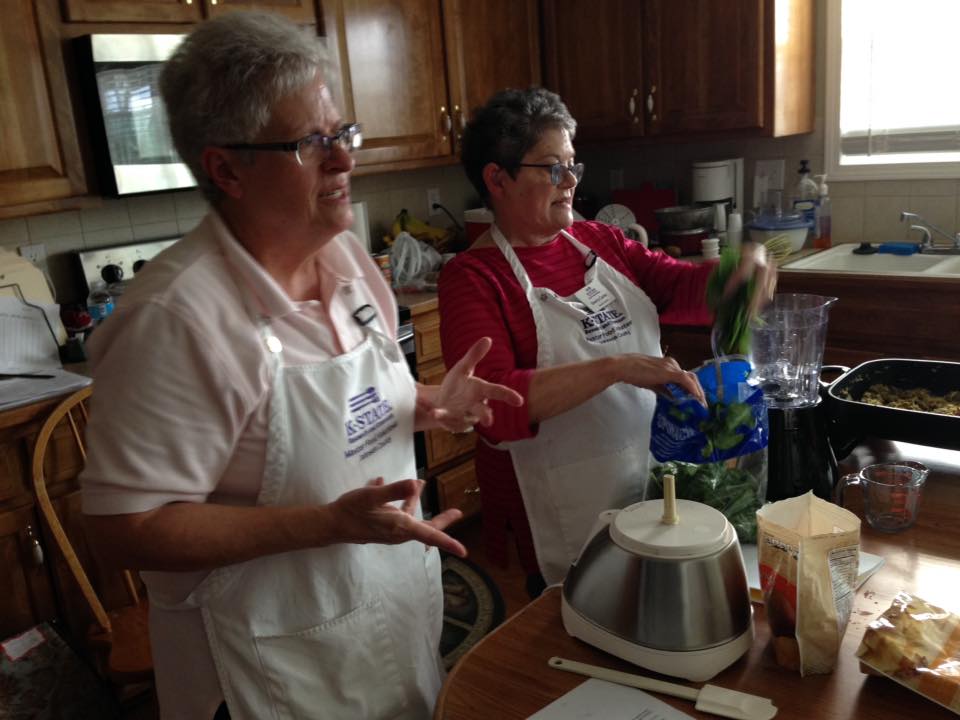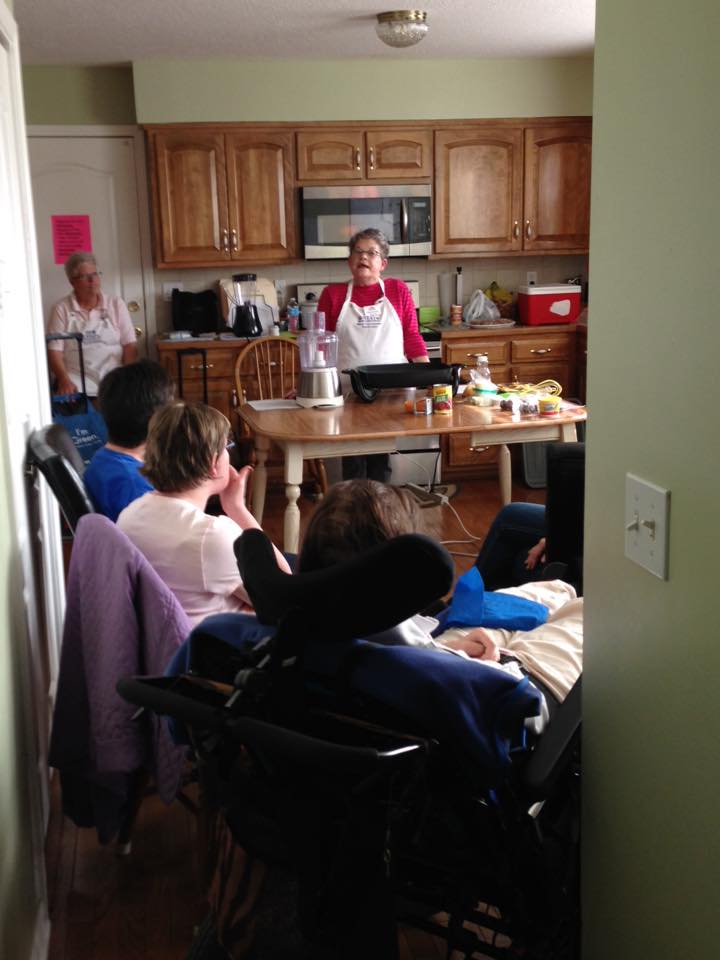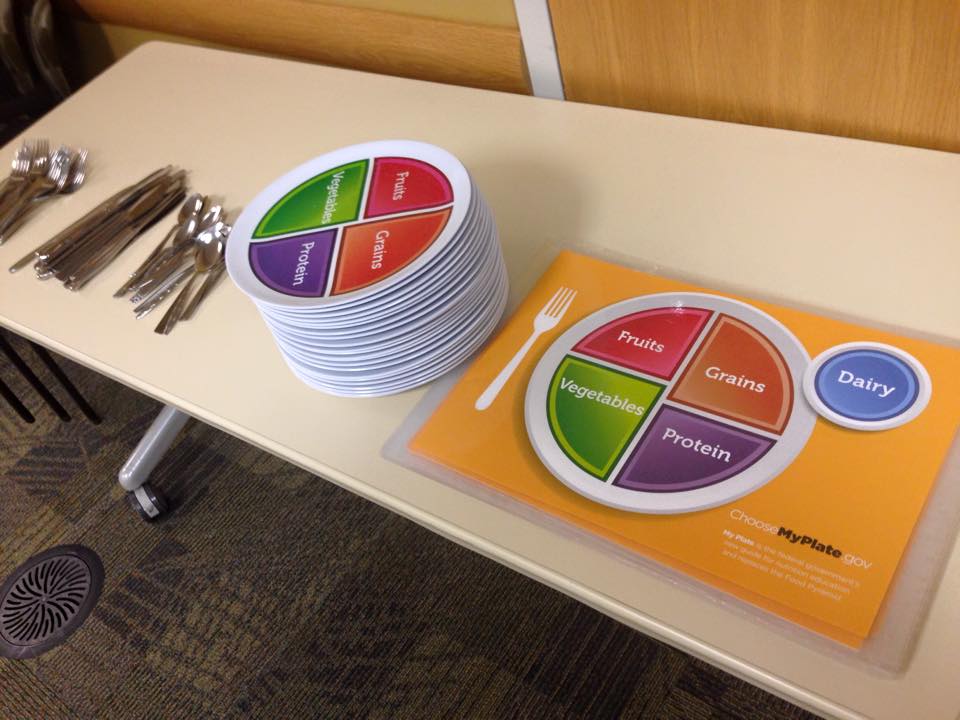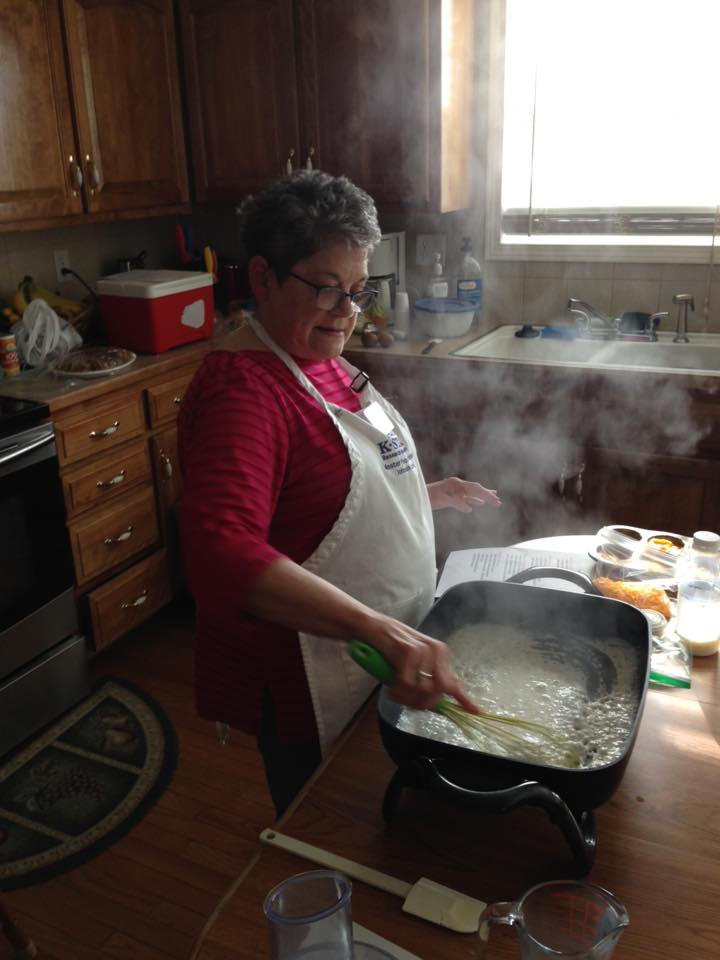March is Developmental Disabilities Awareness Month. The nationwide campaign seeks to raise awareness about the inclusion of people with developmental disabilities in all areas of community life, as well as awareness of the barriers that people with disabilities still sometimes face in connecting to the communities in which they live.
One aspect of everyday life that can be a barrier to individuals with disabilities is nutrition. The Four Course Living program in Johnson County aims to empower individuals with disabilities and their caregivers with the knowledge and experience to shop and prepare healthy meals safely at home.
Available through the K-State Research and Extension Master Food Volunteer Program, Four-Course Living is a curriculum of primary classes focused on helping individuals with disabilities discover the importance of nutrition, safety, planning and prep. Students have the opportunity to exercise their ability to listen, follow directions, cooperate and use basic kitchen equipment as they cook and enjoy a meal with their peers.
Feeding Unmet Needs
The program was created in 2015 by Jean Porter, a retired special education transition specialist, and Sherry Carter, a retired Family and Consumer Science teacher. Both Jean and Sherry are K-State Research and Extension Master Food Volunteers.
At the heart of the program was the desire to create an environment where individuals with disabilities could develop kitchen and food-preparation skills, both of which are critical for individuals with disabilities who live in the community. Yet it can be difficult to find classes tailored to these individuals’ unique needs. Jean and Sherry approached Barb Helm, Executive Director of Arcare, about starting a program through K-State Research and Extension to fill the need for specialized classes in the community. They wrote and submitted a grant to the Arcare Charitable Fund, and the program was officially established.
The classes offered by Four Course Living highlight the importance of the program’s four pillars:
- Nutrition. Instructors utilize the USDA’s food icon, MyPlate, as a visual reminder to help individuals make healthier food choices, learn about portion control and select foods from the appropriate food groups.
- Safety. Classes dedicated to kitchen safety cover topics ranging from how to use appliances correctly to the importance of safe food handling. Because classes show rather than tell, students have the opportunity to practice the safety tips and demonstrate their skills among their peers.
- Planning. One challenge individuals with disabilities often face in preparing meals is doing so on a fixed income. In the planning courses, instructors work with students to understand the importance of outlining their meals ahead of time, and they learn how various ingredients can be combined to make different balanced meals while staying on budget.
- Prep. Using many skills learned in the other classes, individuals with disabilities have the opportunity to participate in a hands-on cooking class. Best of all, participants get to enjoy the food they make before class is over.
Customized Support
Volunteers are always exploring ways to tailor the classes to suit individual needs of the students. For example, volunteers recently created recipes tailored for a client who preferred to cook only in the microwave or toaster. Volunteers found items such as reusable and washable “toaster bags” that allow the student to cook crispy grilled cheese sandwiches safely in a toaster. Course instructors also educate participants on the availability of fresh produce at the store. Using precut items can be a safe option that also cuts down on the number of dishes used and prep time needed for a recipe.
When students attend their first class, they are given a binder to store their recipe cards. The cards are printed and put in page protectors so the students can add them to their binder after each class. The recipe cards have easy-to-follow instructions and visuals, and they can be tailored to the individual’s needs.
Classes are also offered specifically for day service and residential providers. The Master Food Volunteers encourage staff to participate in class with the individuals they serve. Volunteers find that when the staff member and individual with disability participate together, it fosters collaboration, strengthens communication and increases participation. In-depth instruction on cooking for an individual with diabetes or specific dietary requirements can be provided. The classes also cover appropriate ways for staff to clean surfaces and hands, wash produce and control portions. These classes can be offered at residential facilities so staff and residents can participate together, prepare a meal and enjoy together!
Class Availability
Courses are usually taught in person and limited to 15 students to allow for appropriate instruction and room to work together to prepare a meal. Because of Covid-19, the classes have been offered online over the past year, and one-on-one classes over Zoom are also available. However, volunteers and students are looking forward to being able to gather for in-person classes very soon.
Visit the Four Course Living site to learn more about the program, access recorded courses or register for a future class.












